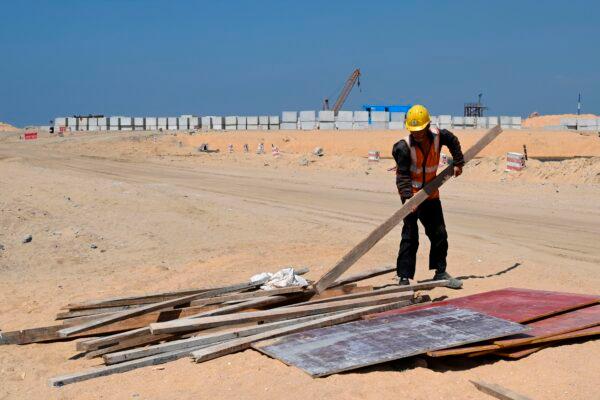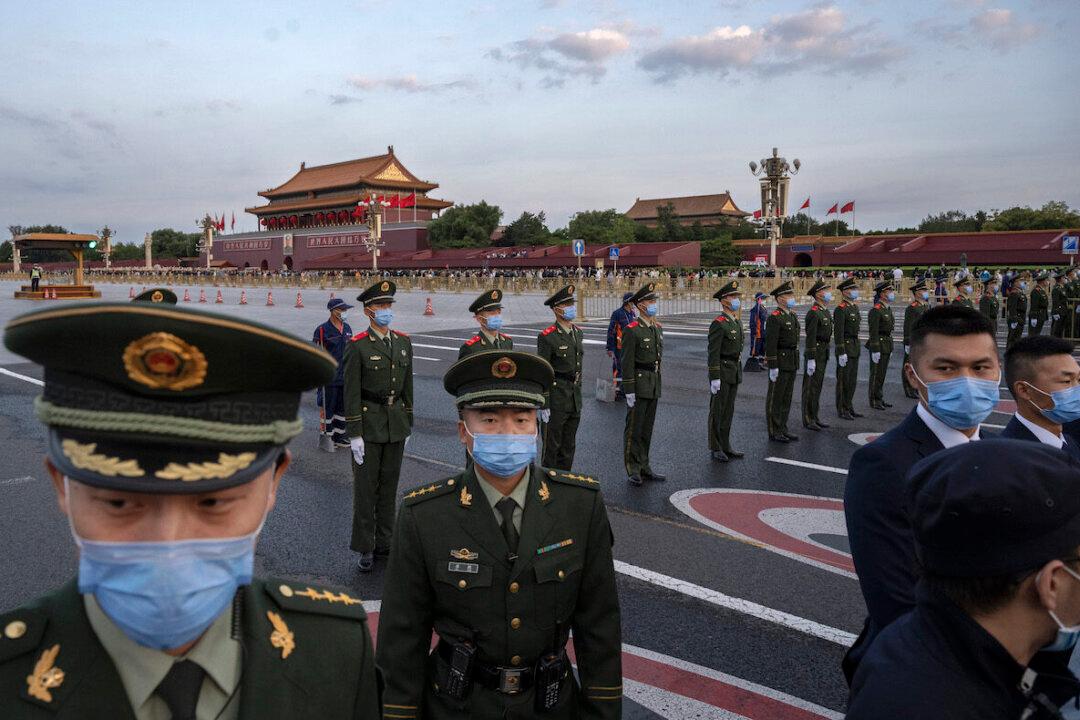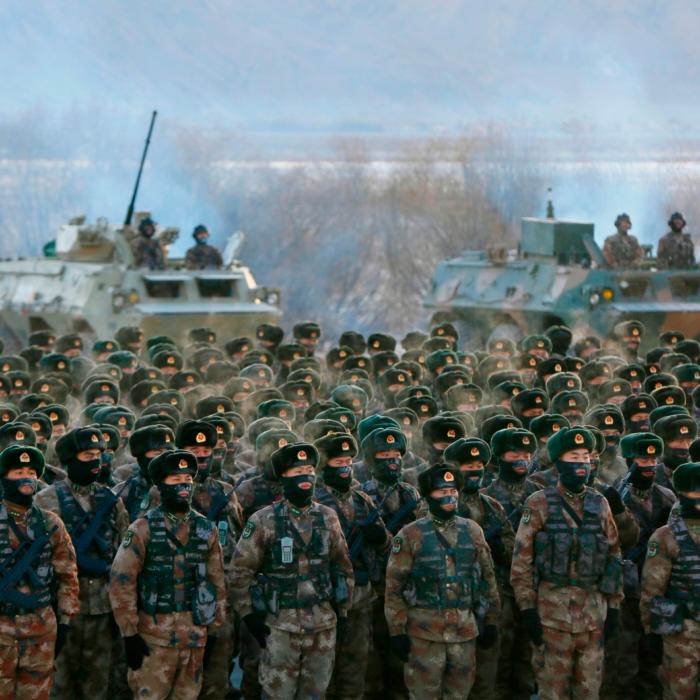On the so-called National Day (Oct. 1) of the Chinese communist regime, the ruling Chinese Communist Party’s (CCP’s) official media reported that Beijing is becoming the thought capital of the world—an assertion subsequently ridiculed by a torrent of posts on Chinese social media.
The daily newspaper Reference News, which is run by the CCP’s official mouthpiece news agency Xinhua, published the headline on Sept. 29: “Beijing is Becoming the Thought Capital of the World.” A subheading directly underneath it claimed that “Foreign media are enthusiastically discussing the white paper on ‘A Global Community of Shared Future: China’s Proposals and Actions’”—which was published on Sept. 26.
The white paper is, in effect, the CCP leader Xi Jinping’s rhetoric on the communist regime’s plans for global expansion and dominance. Despite the CCP’s online censorship, posts on Chinese social media mocking the news continued to appear.
The Reference News report focused on praising Mr. Xi’s concept for a “community with a shared future for mankind,” which he first proposed in 2013.
Meanwhile, China’s State Council Information Office recently released the “White Paper on a Community with a Shared Future for Mankind.” It stated that Xi’s concept of such a community presented a vision that ”rises above the exclusive rules of bloc politics, the notion of might makes right, and the ‘universal values’ defined by a handful of Western countries."
Reference News cited a speech by Chinese Foreign Minister Wang Yi at the white paper conference, where he said that Xi Jinping had “creatively proposed the establishment of a global community of shared future,” and that the proposal “has charted the correct path for the world at a major historical turning point, and built strong consensus for international cooperation during turbulent times.”

A Chinese laborer works at a construction site on reclaimed land, part of a Chinese-funded project for the Port City in Colombo, Sri Lanka, on Feb. 24, 2020. (Ishara S. Kodikara/AFP via Getty Images)
In the Reference News report, it mentioned two foreign media outlets for the part claiming Xi’s idea was “enthusiastically discussed by foreign media”: one was Singapore’s “Straits Times,” and the other was Russia’s state-owned domestic news agency “RIA Novosti.”
Reference News quoted an article from the Russian news website on Sept. 27, which said that the white paper shows that China is “becoming the world’s economic and ideological leader“ and praising the ”Belt and Road Initiative“ (BRI). The BRI is Mr. Xi’s grand economic and political project for the CCP’s global expansion—a means to creating “an ideal world.” The BRI is the “material symbol” of that ideal world, and “Beijing has become the thought capital of the world,” RIA Novosti claimed.
According to Xinhua on Sept. 26, the communist regime’s promotion of cooperation with its BRI is also a means of “building a community with a shared future for mankind.”
Debt Diplomacy
The CCP’s BRI has been widely criticized by observers in the western world for creating debt traps for developing countries. As the Chinese economy continues to be sluggish, however, China’s investments in the BRI are shrinking significantly. At the same time, a number of other countries are planning an India–Middle East–European Economic Corridor to counter it.China under the CCP’s rule has perhaps the strictest internet censorship on earth. The country’s press freedom has consistently been described as poor. Indeed, it ranked second-worst in the world press freedom index in 2023—just above North Korea.
Reference News’s boasting about Beijing supposedly becoming “the thought capital of the world” triggered mockery and ridicule from Chinese netizens. One wrote in a social media post: “Beijing has become the thought capital of the world. I wonder if Pyongyang will be jealous about this?”
Another post read: ”How can a place without freedom of thought become a thought capital? Isn’t Reference News engaged in advanced mockery of the state?”
Another asked in a post, “Are we living in a parallel universe? Why didn’t I see the hot discussion of it in any foreign media? How come I don’t even know what ‘Thought Capital’ means?”






